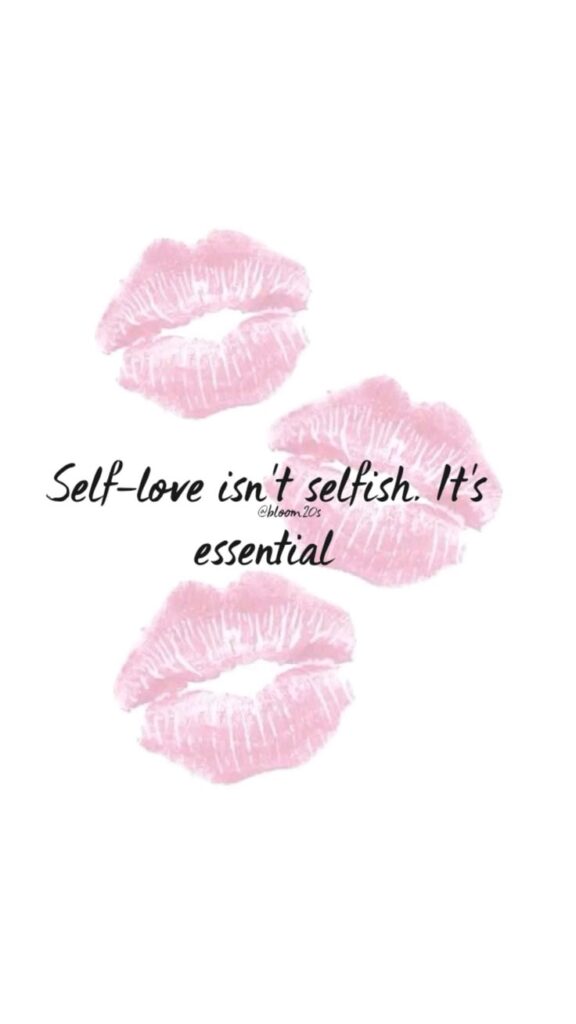Self-love gets tossed around a lot, but it isn’t just a trendy phrase or something you magically feel overnight. Self-love is a practical skill you can develop through consistent actions and habits that support your well-being. Anyone can learn to understand, appreciate, and care for themselves better—no perfection required.
Learning to love yourself involves everyday choices, like setting boundaries, giving yourself patience when you make mistakes, and recognizing your own needs. With simple practices and a bit of discipline, you can build a more compassionate relationship with yourself—one that grows stronger with time.



Key Takeaways
- Self-love is an actionable skill that can be developed by anyone.
- Regular daily habits make self-love practical and achievable.
- Discipline and mindfulness help integrate self-love into everyday life.
Why Self-Love Is a Skill, Not Just a Slogan
Self-love involves more than repeating trendy phrases; it requires daily, thoughtful actions and decisions. By viewing self-love as a skill, you focus on gradual, real changes in how you treat and value yourself.
Moving Beyond Catchphrases
It’s easy to find slogans about self-love on social media or posters, but these phrases lack weight without practice behind them. Telling yourself “love yourself” doesn’t automatically build self-esteem or resilience. Developing self-love means learning to recognize your needs, set limits when necessary, and accept mistakes without self-criticism.
Building self-love requires:
- Checking in with your thoughts
- Challenging harsh self-talk
- Practicing patience when you fall short
Habits like keeping promises to yourself and learning to say “no” train your mind to prioritize well-being. This skill grows slowly, improving with each mindful choice. Each small action—like forgiving yourself for bad days—makes your confidence more solid.
The Impact of Practicing Self-Love
When you treat self-love as a skill, you notice real benefits in your life. Consistent self-kindness can lead to healthier relationships, because you’re more aware of your own boundaries and needs. This awareness helps you avoid burnout and resentment, as you learn to invest time and energy only where it matters most.
Regular practice creates lasting changes in how you view setbacks. Instead of harsh judgment, you start to offer compassion to yourself, making it easier to recover from difficulties. Over time, you internalize a sense of worth that doesn’t depend on external approval.
| Skill | Effect |
|---|---|
| Setting boundaries | Reduces overwhelm |
| Positive self-talk | Supports resilience |
| Self-compassion | Increases emotional well-being |



Core Principles of Developing Self-Love
Building self-love starts with understanding how you view yourself and how you treat yourself in everyday life. This includes recognizing your own worth and learning to respond to challenges with kindness instead of criticism.
Understanding Self-Esteem and Self-Acceptance
Self-esteem is how much you value yourself and believe in your abilities. Self-acceptance is about embracing your strengths and weaknesses without harsh judgment. These two ideas are the foundation of authentic self-love.
If you struggle with low self-esteem, you might notice negative self-talk or an urge to compare yourself to others. Learning not to judge yourself harshly—even when you make mistakes—helps shift this thinking. Instead of focusing on flaws, try identifying what makes you feel proud.
You can start small by listing qualities or achievements you appreciate about yourself. Over time, this practice can help you recognize your own value and build a more positive self-image. The goal is to be honest about your challenges while still accepting yourself as worthy of care.
Role of Self-Compassion in Growth
Self-compassion means treating yourself with the same kindness and understanding you’d give a friend facing a tough situation. It focuses on offering support when you’re struggling, rather than blaming yourself.
When you have a setback, practicing self-compassion can help you respond with encouragement, not self-criticism. For example:
- Speak kindly to yourself after a mistake
- Accept difficult emotions without judgment
- Take time to recharge when you feel overwhelmed
Research shows that self-compassion boosts emotional resilience and reduces anxiety. As you learn to respond to yourself with patience, it becomes easier to grow and improve—without sacrificing your sense of worth.



Training Self-Love: Foundational Practices
Training yourself in self-love means taking practical steps every day to support your well-being. These approaches help you gently shift your mindset and become more aware of your inner world.
Building a Positive Self-Talk Habit
What you say to yourself matters. Your inner dialogue shapes how you see yourself and your abilities.
Each day, notice when your thoughts turn negative or self-critical. Gently challenge those ideas and replace them with more balanced statements. Try simple practices such as:
- Reframing: If you think, “I’m not good enough,” change it to, “I’m learning and doing my best.”
- Affirmations: Use clear, realistic phrases like, “I deserve respect” or “I can handle challenges.”
- Journaling: Write down your thoughts to spot patterns and track your progress.
You may find it helpful to keep a list of positive reminders somewhere visible. With practice, these habits support stronger self-esteem and a more flexible mindset, so self-love feels more natural.
Strengthening Emotional Awareness
Self-love grows when you understand and accept your emotions instead of avoiding them. Developing emotional awareness is about noticing your feelings without trying to push them away or judge yourself.
Start by setting aside a few minutes daily to check in with yourself. Ask, “What am I feeling right now?” and name the emotion honestly.
You can also use tools such as:
- Mood tracking apps or charts
- Deep breathing or grounding exercises
- Talking to a trusted friend or therapist
By noticing how emotions affect your mood and choices, you teach yourself to respond with compassion rather than criticism. This practice boosts your focus on your real needs and encourages you to treat yourself kindly, especially on tough days.



Cultivating Discipline and Focus for Self-Love
Building self-love isn’t just about intention—it also relies on practical habits that shape the way you treat yourself. Discipline and focus work together to help you make decisions that align with your well-being, even when motivation fades.
Setting Boundaries with Yourself
Setting clear boundaries with yourself means being honest about what helps or harms you. This includes knowing when to say no to distractions such as social media, unhealthy eating, or late nights that disrupt your routine. When you recognize your limits and respect them, you create room for growth and self-respect.
You can use simple tools like timers or checklists to help remind yourself of what matters. For example, scheduling set times for work, rest, or hobbies can help you avoid burnout and make more mindful choices. Try keeping a journal to identify situations where boundaries slipped, then plan how you’ll respond differently next time.
Practicing boundaries isn’t about self-punishment—it’s about honoring your needs. Every time you choose to protect your energy or time, you reinforce your sense of self-worth.
Developing Consistency in Self-Care
Consistency in self-care is less about perfection and more about steady progress. Focus on small, realistic actions that support your mental and physical health. For example:
- Drinking water regularly
- Moving your body every day
- Prioritizing sleep
- Taking short breaks during stressful periods
Instead of relying on motivation, use discipline to build routines. You might find it helpful to organize your habits into a table or tracker, marking off daily achievements. This visual progress keeps you accountable and fuels your motivation to continue.
When setbacks happen, remind yourself that discipline is a skill you strengthen over time. Each act of care, no matter how minor, is an intentional choice to support yourself. This approach grounds self-love in daily actions, making it part of your routine rather than a distant goal.



Integrating Self-Love Into Everyday Life
Building self-love requires small, consistent actions rather than grand gestures. By creating daily habits and responding thoughtfully when things go wrong, you give yourself a practical foundation for growth.
Making Self-Love a Daily Routine
Start by treating your emotional and physical needs as essential, not optional. Small acts, such as checking in on how you feel or setting boundaries with others, make a difference.
You might build a routine using tools like a self-reflection journal, short mindfulness sessions, or activities that bring you genuine joy—like walking, listening to music, or a favorite hobby. Try this simple daily checklist:
| Habit | How to Practice |
|---|---|
| Mindful breathing | 3 minutes after waking up |
| Affirmations | Say one positive thing to self |
| Mini breaks | Stretch or step outside |
| Creative expression | Draw, write, or dance |
| Gratitude practice | Note 1 thing you appreciate |
Remember, self-love also means nourishing your body. Eating well, moving, and getting enough rest signal respect for yourself.
Navigating Challenges and Setbacks
Difficult moments can test your commitment to self-love. You may encounter negative thoughts, unsupportive environments, or old habits. Expect setbacks; they are normal, not failures.
Practice compassion when you slip up. Instead of harsh self-criticism, try asking yourself, “What would I say to a friend right now?” This shift in language can help you respond with patience instead of frustration.
Keep a realistic mindset: progress is rarely linear. If things feel overwhelming, it’s okay to seek support from friends, therapists, or groups that value self-kindness. Acknowledge setbacks as part of the learning process, not the end of your self-love journey.





